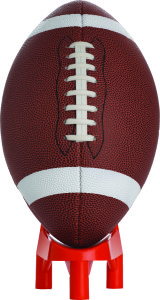By Steve Brawner
© 2016 by Steve Brawner Communications, Inc.
Is China a threat? Yes, but not the kind you might think, and it also represents an opportunity for Arkansas, says a professor and entrepreneur who knows more about this subject than I do.
Jeremy Haft, author of “Unmade in China: The Hidden Truth About China’s Economic Miracle,” says his experiences building companies in China have left him without fear that the country will soon overtake the United States. For all the talk about China’s ascendancy, the gap between the two countries’ wealth is widening, and for good reason.
The system just works better here than it does there, he said at the Clinton School of Public Service Feb. 11. Holding up a bottle of water, he said only a few companies are involved in the production thanks to America’s efficient, transparent supply chain. The United States has been producing goods for the free market for centuries and has a well developed system of corporate law and a climate of individual freedom. Chinese products require 15-20 firms, many of which lack basic governance skills, and each step in the production process adds risk.
I know all American regulators such as the EPA are supposed to be terrible, but after listening to Haft, our system sounds pretty good. China’s regulatory system is “broken and fragmented,” leading to corruption and unsafe practices, he said. China has had many safety scandals in recent years, including 300,000 babies suffering from renal failure because baby powder was contaminated by an industrial chemical. Sales of American dairy products to China quadrupled that year. And when something bad happens in China, rather than challenge the system, the one-party Chinese government tends to find one person to scapegoat and “take him out back and shoot him,” he said.
Chinese consumers know about these safety and quality problems, and as a result will pay a premium for American products. In his export company, farmers export their goods to China at a high price and sell pork products like organs that Americans won’t eat but Chinese like.
China represents a huge opportunity for Arkansas food producers. Agriculture is Arkansas’ number one export to China, while China is the state’s second largest export market after Canada. The country of 1.4 billion people contains only enough land suitable for farming to fit inside the state of Texas, and 90 percent of the country’s aquifers are contaminated. For all of the country’s supposed technological advancement, most farming is done on 140 million small farms tilled by hand. That means China imports a lot of agricultural products – cotton, soybeans, pork and soon, rice. Many Chinese aqua farms also are contaminated – chicken coops are placed over ponds and the fish are fed by the waste – so catfish is another potential export product.
China represents other economic opportunities for Arkansas. China’s deforestation activities have left it short of forestland, which is why it recently announced it was investing $1.3 billion in a pulp mill in southern Arkansas. Aerospace – a major Arkansas export – also represents an opportunity because the Chinese are less adept at such advanced manufacturing processes.
The real threat from China isn’t from continued trade dominance, but from substandard, often unsafe products. Remember the baby powder scandal? The United States imports four billion pounds of food annually from China. Risky Chinese raw materials are used to make American medicines and other products. When California contracted with a Chinese company to repair the San Francisco Bay Bridge, the welds connecting the decks were cracked and the quality random. When U.S. inspectors sounded warnings, California fired the inspectors.
So instead of creating trade barriers to China’s huge and growing market of 1.4 billion people, American policymakers should be finding ways to capitalize on those people’s desire to buy our stuff, Haft said. Meanwhile, policymakers should concentrate on the real threat from China – unsafe and shoddy products.
Haft made a compelling case. As he was saying all this, I noticed I was taking notes on my Apple laptop while keeping an eye on my iPhone, both of which were invented by an American company but made in China. Apple took my money; China got most of the jobs. So is China a threat or an opportunity? Both, I guess, like a lot of things.
To watch Haft’s address at the Clinton School, click here.

